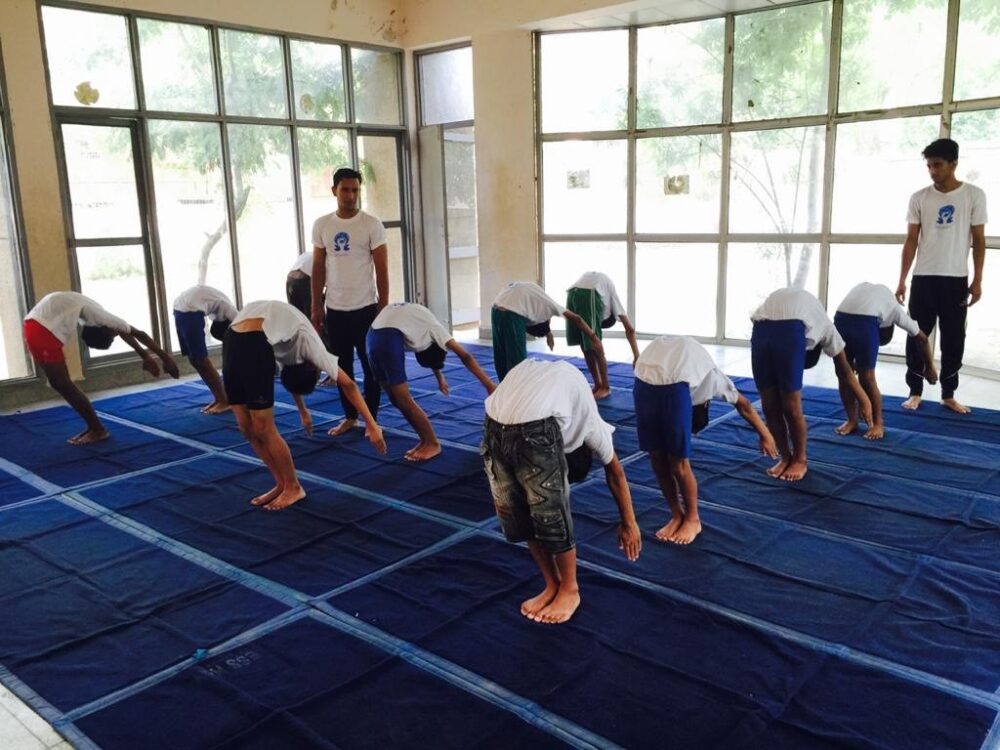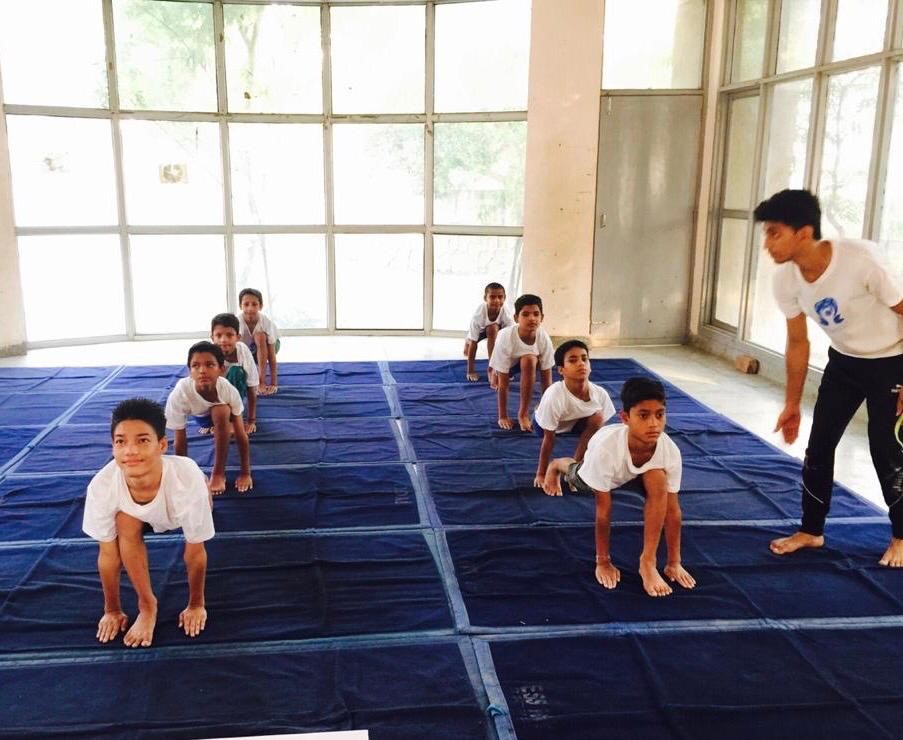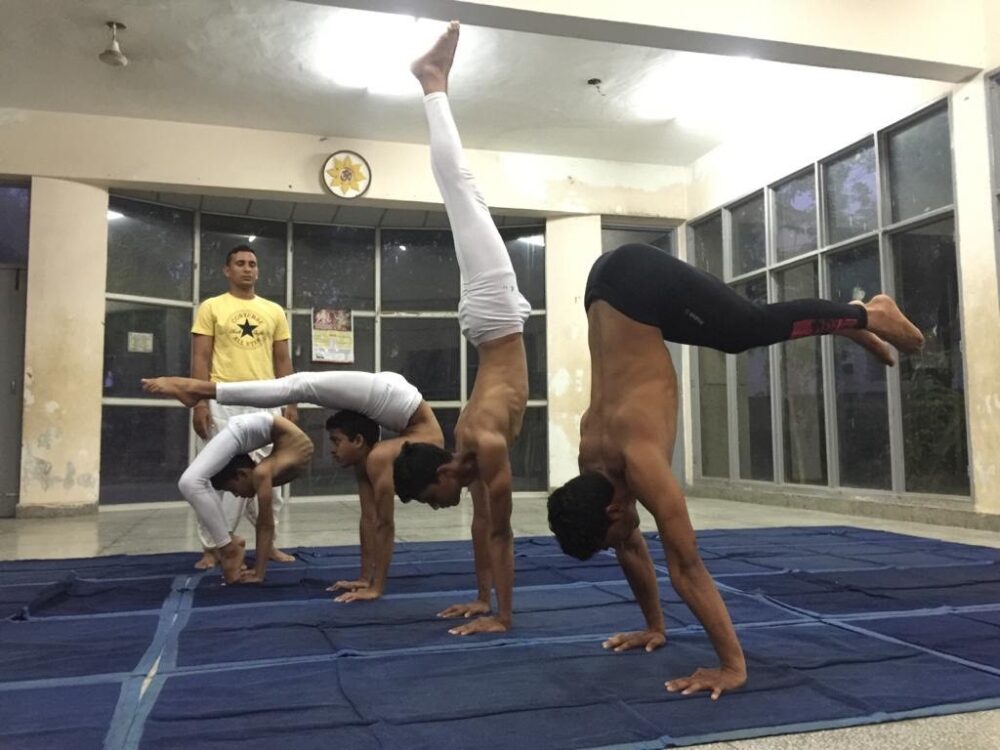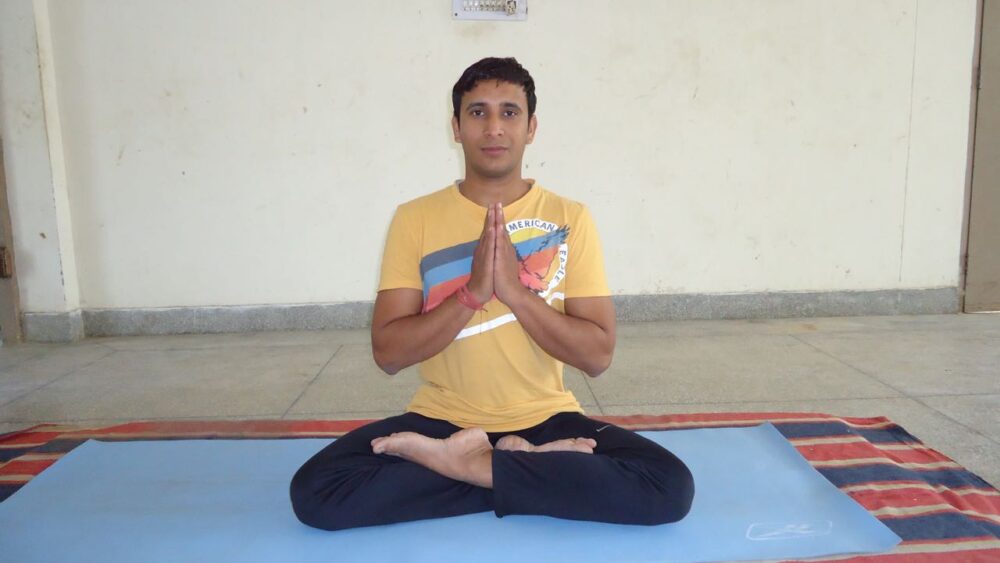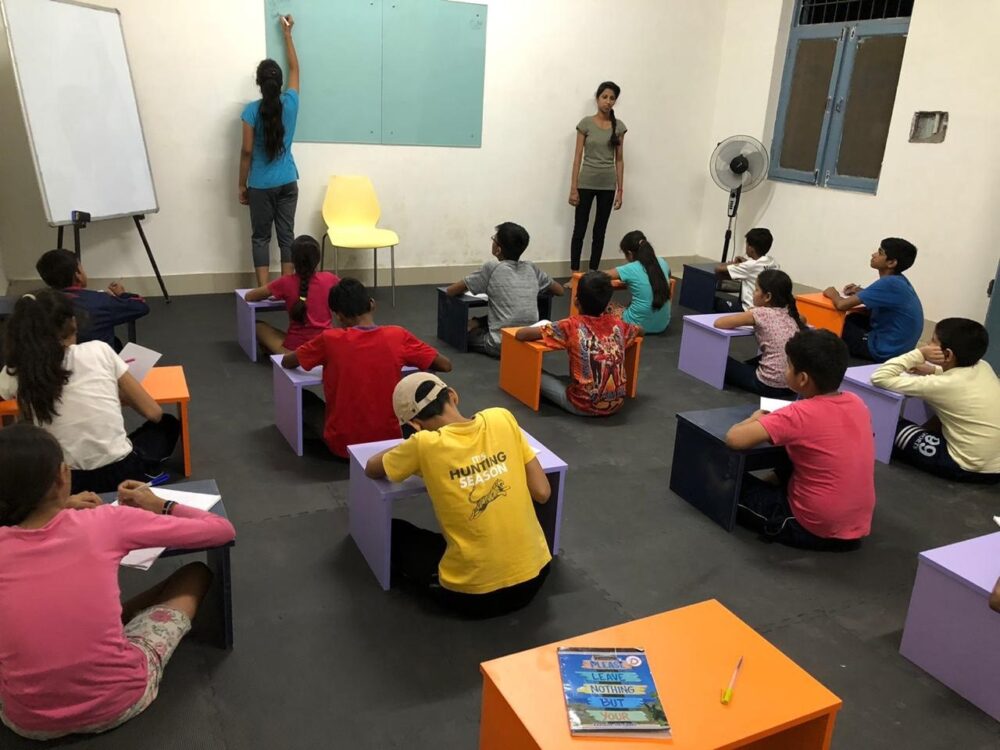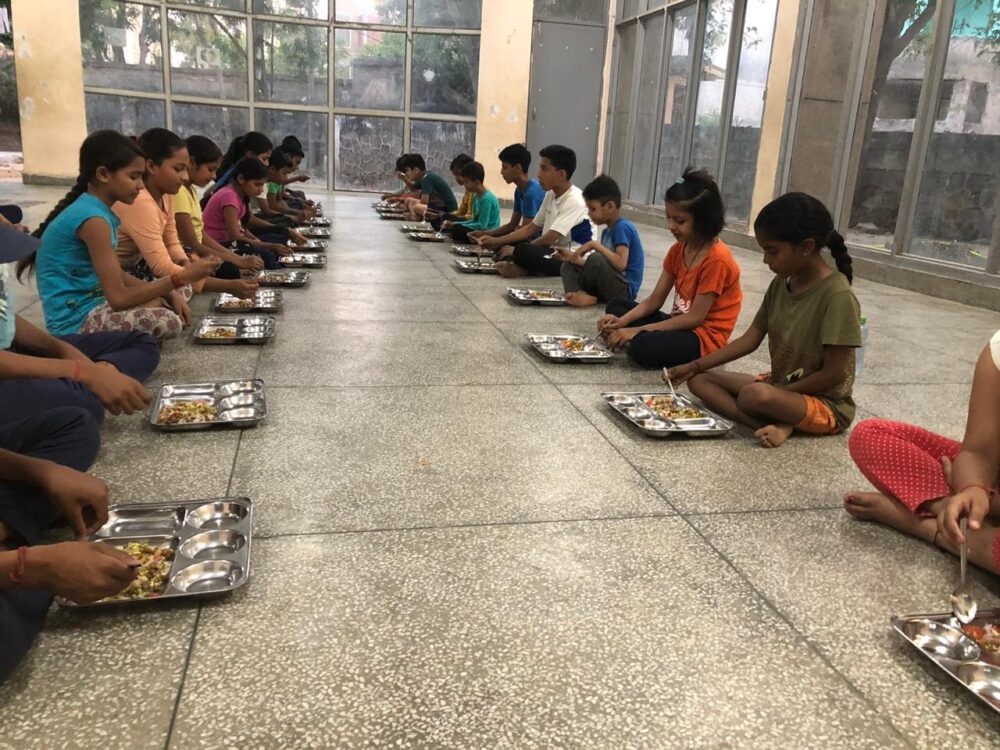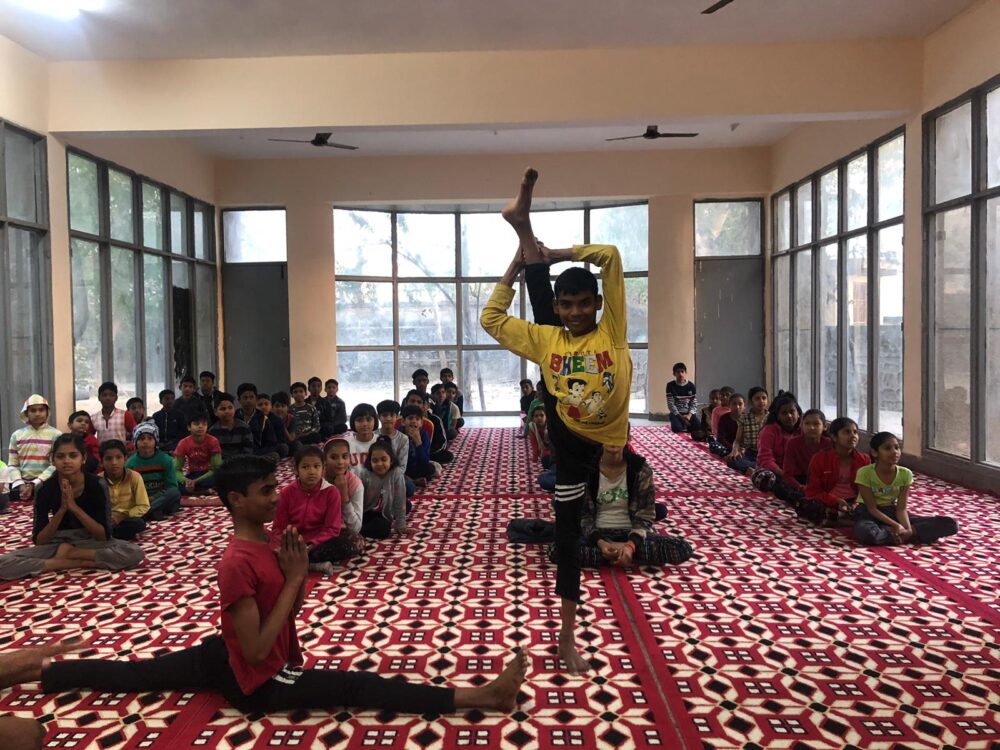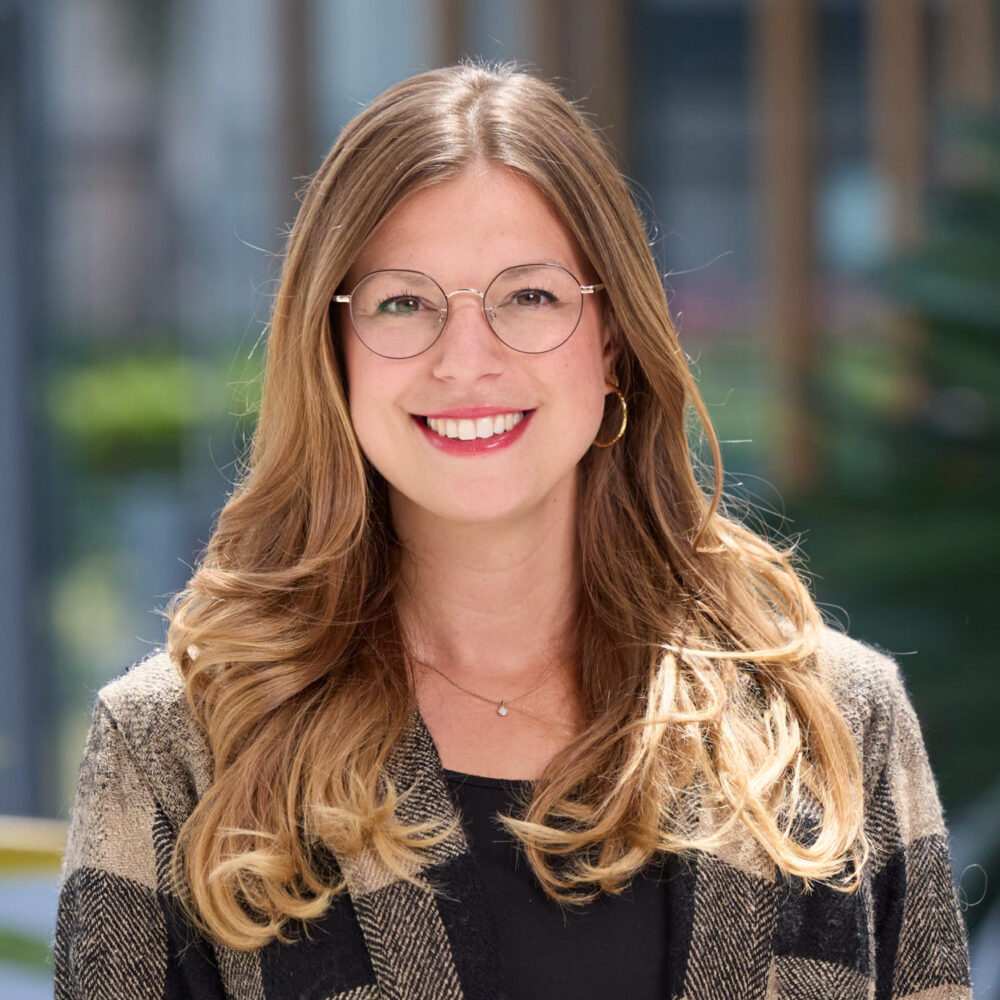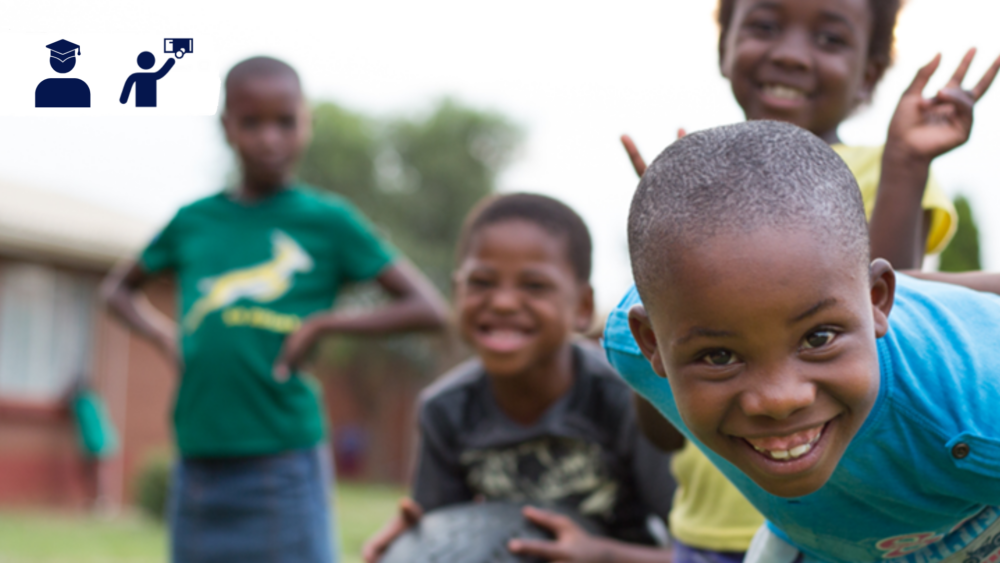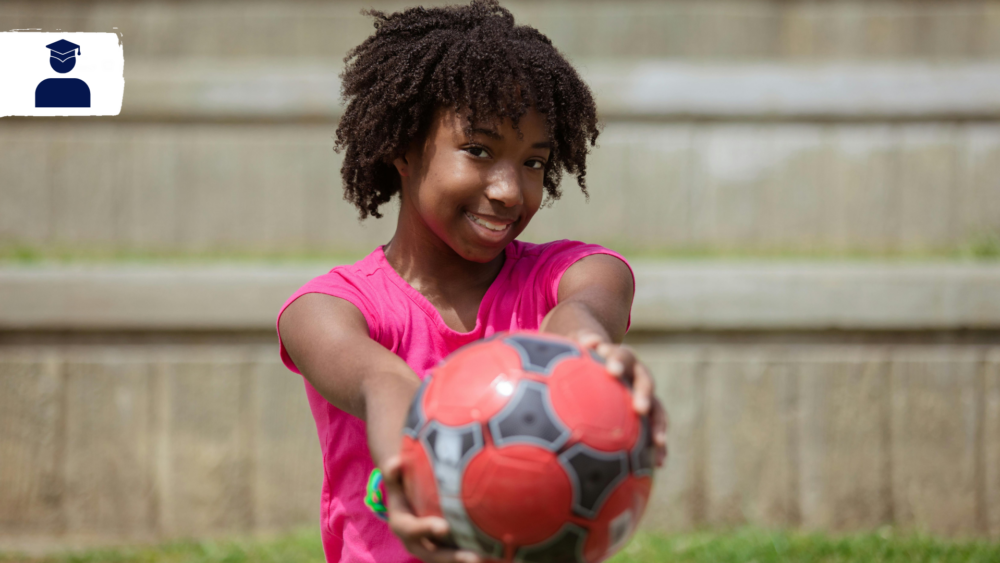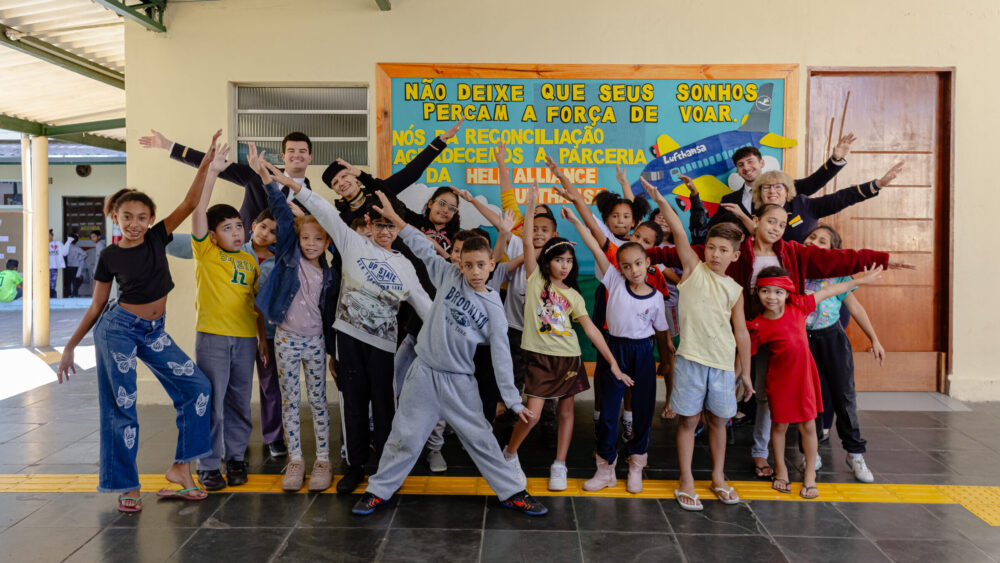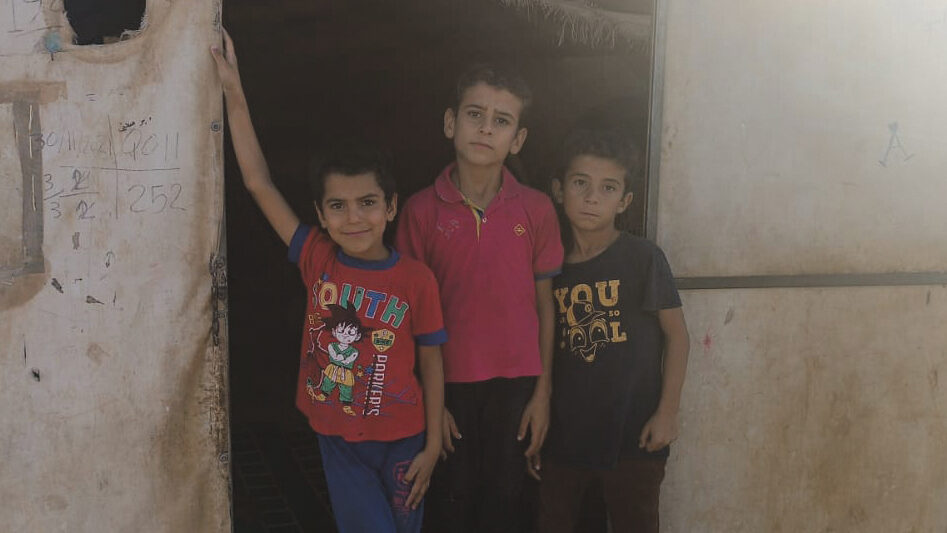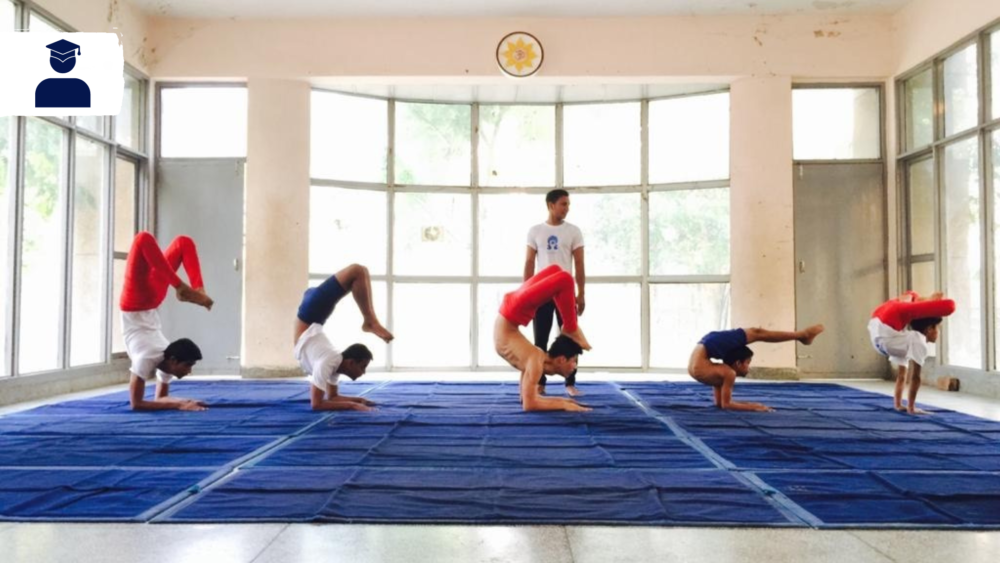
Yoga classes, Gurugram
In the project, disadvantaged children receive support to improve their school performance through various educational opportunities, health care and yoga classes.
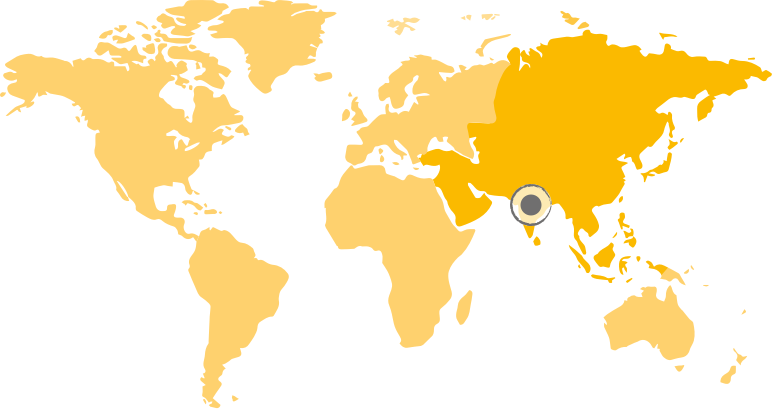
Project Background
With a population of around 1.3 billion people, India is the largest parliamentary democracy in the world. Although the South Asian emerging country has seen considerable improvements in poverty reduction in recent years thanks to its dynamic economic and industrial development, large parts of the country remain marked by extreme poverty. Due to the lack of jobs in rural areas, about a third of the Indian population lives in cities, and a quarter of them live in so-called mega-slums. Children in particular are the victims of the poor living conditions on the ground; there is a lack of sufficient drinking water, food, electricity and hygiene. In addition, about 25% of children in India have no access to education, and girls are disproportionately affected. Without school education, however, the children have hardly any chance of escaping life in poverty.
Target Group
In Gurugram, a satellite city of the metropolis of New Delhi, the inhabitants also have to struggle with these problems. The slums of Gurugram are not far from New Delhi’s international airport. There is a lack of infrastructure of educational institutions, and the quality of public schools is generally poor due to overcrowded classes and poorly trained teaching staff. In addition, parents rarely recognise the value of education. Many of the children often skip school or drop out of school early and without graduation. While girls are often married at an early age, boys are expected to contribute to the family’s livelihood as quickly as possible and have to go out to work and beg.
Project Goals
The overall education of 180 children and young people aged between three years and the early twenties is the aim of the project. The method used by Devender Kumar, a yoga teacher, seems rather unusual for western understanding. Through yoga and meditation, the children increase their ability to concentrate, which in turn increases their ability to learn.
Instead of spending their time on the street after school, the children in the project receive attention and individual support. Among other things, this is intended to contribute to increasing their self-esteem and self-confidence. In addition, they are also supported by special tutoring programs such as English courses.
Through the project’s philosophy of holistic education, which combines educational opportunities with health and hygiene care, especially yoga, the children are to achieve a higher standard of education in the long term and in a sustainable manner, thus finding a way out of poverty.
The success of this concept is confirmed by the positive development of the children’s school grades.
In addition to clothing, the children in the project receive a healthy, wholesome meal and learn important skills in the area of health and hygiene. The aim now is to be able to offer this support to even more children in the future and to include parents and siblings.
What are you supporting
Through your donations you help us to expand the range of meals and extend it to more children. Furthermore, you support us in offering English lessons as well as targeted tutoring for more children.

